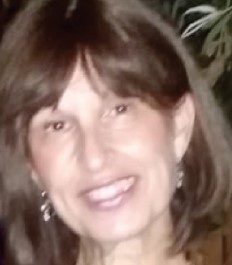
Batya Ruddell is a columnist for Hamodia/Binah publications and the author of seven books. Batya is a creative writing teacher, writing mentor and coach, and certified Narrative Therapist.
Batya lives with her husband in Kiryat Ye’arim, Israel. They have four children.
Q: Tell us the story behind your first book The View from Ninveh.
I was sick with Hepatitis C and needed to take a very difficult chemotherapy treatment for about a year. When I was going through my treatment, I wrote a journal and it eventually became a book. That wasn’t the plan. At the time, I just wrote in a journal in order to express my thoughts and feelings.
The View from Ninveh also includes an email correspondence with a dear friend of mine, Mrs. Debbie Schechter. Mrs. Schechter was one of my editors at the Binah Magazine and when she stopped working there we stayed in touch. When I was sick, she was really there for me. We emailed each other every day and spoke on the phone. As a result, we formed this tremendously close friendship even though we had never met each other in person.
I was due to start my treatment straight after the Yomim HaNoraim (High Holidays). I knew how difficult this treatment would be and its side effects and was understandably terrified. I mentioned to Debbie that I felt like Yonah in the bottom of the boat who was trying to flee to Tarshish instead of going to Ninveh. “No, you are well on your way to Ninveh,” she replied. Since then, every week when I went to Hadassah Hospital to get my treatment, that became Ninveh, hence the title of my book. The treatment was physically horrendous but what I gained spiritually was incredible. Of course, I would not have chosen to go to Ninveh but once there I wouldn’t have wanted to miss that experience and what I learned from it.
Q: They say what doesn’t kill you makes you stronger. How have you grown as a person as a result of your medical situation?
My medical situation had a tremendous impact on me. It felt like I lost everything that made me who I was. I couldn’t be a properly functioning wife and mother. I couldn’t work. I couldn’t drive a car. There weren’t any externals that made me who I was, there was nothing left. So, I had to go to deep, internal places which were incredible and extremely empowering. I had to choose to accept the situation instead of fighting it. I became very spiritually aware during that time. The weaker my body became, there was more room for spirituality. In fact, I didn’t want to come back from that experience. I was afraid of rejoining the world afterwards and losing what I’d learned.
Q: You have accomplished so many things in your life. Where does your drive come from?
From Hashem! I ask Hashem to show me what He wants from me and to help me achieve it. I ask to be a shaliach for Him. I ask that He should show me what my purpose is in the world.
Q: Tell us about your religious journey.
I was involved in a secular Jewish youth group in London. In 1983, I came with a friend to visit Israel for the first time. It was during Sukkot and Simchas Torah and I had never even heard of these holidays before, let alone seen them. I couldn’t keep away from the Kotel because I was mesmerized by the men with their lulavim and esrogim. On Simchas Torah, I was staying in the Bernstein Youth Hostel on Karen Hayesod Street, and from the roof, I could see the men dancing with the Sifrei Torah in the street outside The Great Synagogue on King George, so I ran down to watch. Also, during that trip, I would sit by the Jaffe Gate for hours watching the people go by. When I returned to England all I thought about was coming back to Israel. My soul had woken up and was thirsty for nourishment.
Q: When did you make Aliyah to Israel?
I made Aliyah in 1987. At first, I lived a secular lifestyle. In my profession as a pediatric nurse, I was constantly talking to the parents of the babies I took care of. I was especially drawn to the Orthodox families and would get into many conversations about G-d and their way of life. Gradually, several families began inviting me to their homes for Shabbos. Eventually, I went to learn more about Judaism at Neve Yerushalayim and from there, made the inevitable decision to become observant.
Q: Who do you admire?
I admire my husband and children for the strength they have. Life has not dealt with them easy situations. I look up to anybody who has made lemonade out of lemons.
Q: What are your spiritual goals?
My goal is to make myself into a vessel to contain Hashem’s light and the way to do that is to become as G-dly as possible. I am not saying it is easy and I am definitely not there. But that’s the focus; to become as close to Hashem as I can.
Q: What is there to learn from the coronavirus?
I was in absolute awe in the beginning of how Hashem could bring the world to its knees in a matter of weeks and that the so-called stable world as we knew it, could collapse just like that. I realized just how small we humans are and how big G-d is! I feel a sense of urgency to use this time, before the coming of Mashiach, to work on myself as much as possible.
Batya’s books are available at local bookstores or can be ordered online from
